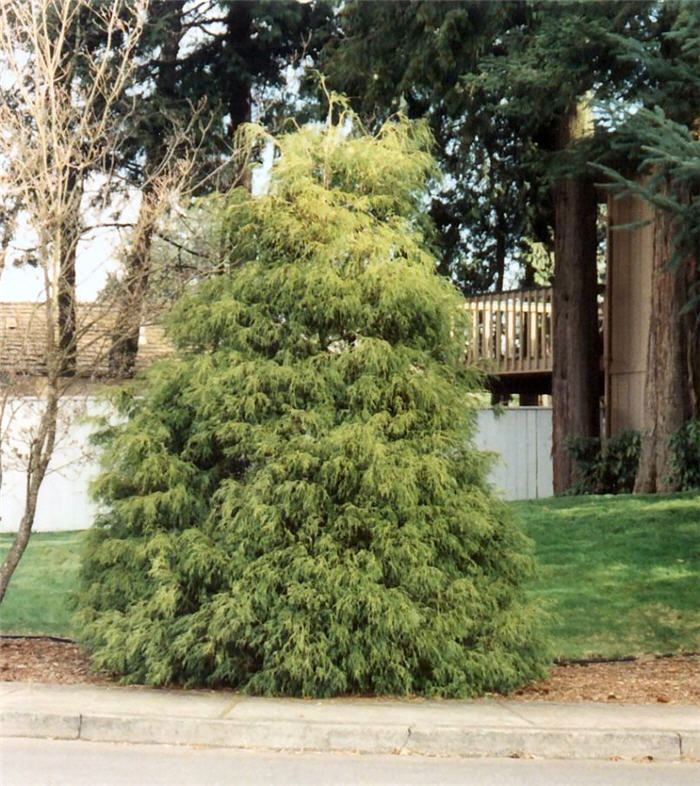| Botanical Name: Chamaecyparis pisifera 'Filifera Aurea' | |
| Common Name: Gold Threadleaf Cypress |

-
Anatomy
-
Culture
-
Design
Plant Type
Conifer, Shrub
Height Range
3-6'
Flower Color
n/a
Flower Season
n/a
Leaf Color
Gold, Light Green, Yellow
Bark Color
Brown, Red
Fruit Color
Brown
Fruit Season
Winter, Fall
Sun
Full, Half
Water
Medium, High
Growth Rate
Slow
Soil Type
Clay, Loam
Soil Condition
Average, Rich, Well-drained
Soil pH
Acid, Neutral
Adverse Factors
n/a
Design Styles
Formal, Japanese
Accenting Features
Specimen, Unusual Foliage
Seasonal Interest
Winter, Spring
Location Uses
Entry, Shrub Border, Foundation, Patio, Raised Planter
Special Uses
Small Spaces
Attracts Wildlife
n/a
Information by: Stephanie Duer
Photographer:
Photographer:
-
Description
-
Notes
'Filifera Aurea’ is a Sawara cypress cultivar that is noted for its drooping yellow foliage and dense, broad habit. This slow-growing evergreen reaches about 6 to 8 feet tall over 20 years, but may eventually reach 15 to 20 feet tall in optimum conditions. Features golden, weeping, thread-like foliage that provides excellent texture and color to foundation plantings (though best suited to an east or north aspect). Foliage provides attractive winter interest. Cones, small in size, appear only on mature plants. Peeling, reddish-brown bark develops on mature branches. Not an evergreen for the low-water garden, but suited to gardens that receives moderate to average watering.
Grow in average, medium, well-drained soils in full sun to part shade, though in our hot, arid climate, it is best planted to avoid mid-day sun. Prefers fertile, loamy soils and regular watering, however, avoid wet, poorly-drained soils. Shelter from wind.